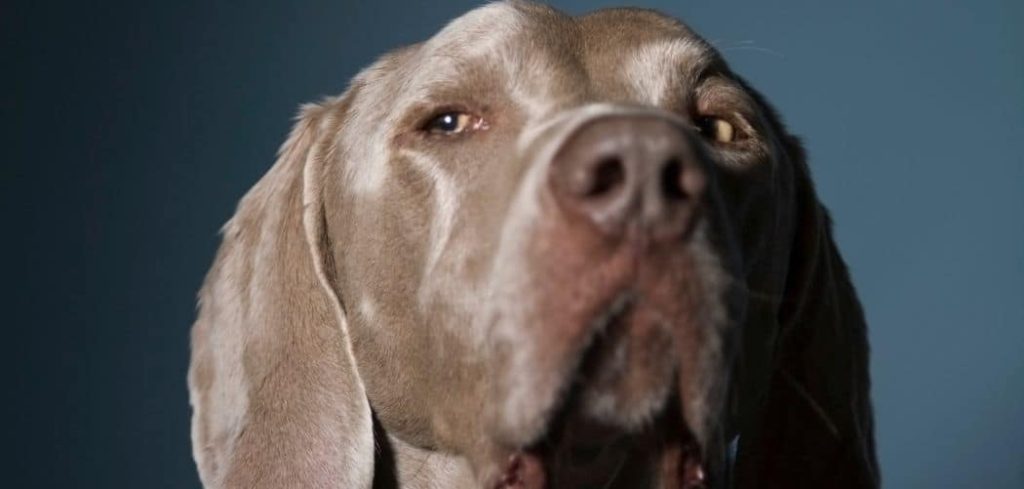A dog’s stool can reveal a lot about their overall health, and noticing excess mucus in dog poop can be alarming.
Mucus is naturally produced in the intestines, but when it becomes excessive, it’s usually a sign of irritation, inflammation, or an underlying condition that needs attention.
We outline the common causes of excess mucus in a dog’s poop, what you can do at home, and when to seek veterinary help.
Table of Contents
What Causes Excess Mucus in Dog Poop? — Why It Happens
Excess mucus in dog poop often points to irritation or inflammation in the digestive tract. This can happen due to dietary changes, infections, parasites, or more serious conditions like colitis or pancreatitis. Sometimes it may also result from food intolerances, stress, or chronic illnesses affecting digestion.
Because the intestines produce mucus to protect and lubricate, an overproduction usually signals the body is responding to irritation.

Excess Mucus in Dog Poop: Common Causes
Dietary Indiscretion
One of the most common causes of excess mucus in dog poop is eating something that doesn’t agree with them. Dogs that get into the trash, eat spoiled food, or consume rich table scraps can develop gastrointestinal upset.
This irritation in the intestines causes the lining to produce extra mucus as a defense mechanism. Alongside mucus, dogs may also have diarrhea, soft stools, or mild vomiting.
While it may resolve quickly if it’s a one-time incident, repeated dietary indiscretion can lead to chronic inflammation and continued mucus in stools.
Read more: What Does Yellow Mucus in Dog Poop Mean? (Understanding color changes)
Food Intolerances or Allergies
Some dogs are sensitive to certain proteins, grains, or additives in their food. Food allergies and intolerances often cause chronic digestive irritation, leading to mucus in the stool.
Dogs with food allergies may also show other symptoms such as itchy skin, frequent ear infections, or persistent licking of their paws. When the intestines are irritated daily, the mucus production becomes ongoing.
This cause is often overlooked but can be identified through elimination diets or veterinary allergy testing.
Intestinal Parasites
Parasites such as Giardia, whipworms, or roundworms can cause significant intestinal irritation. These organisms damage the lining of the digestive tract, triggering excess mucus production.
Dogs with parasites often show additional signs like weight loss, diarrhea, bloating, or visible worms in their stool. Puppies and younger dogs are especially vulnerable because their immune systems are still developing.
Parasites require veterinary diagnosis and treatment with appropriate deworming medications.
Bacterial or Viral Infections
Infections in the gastrointestinal tract can cause inflammation of the colon and intestines. This irritation frequently leads to stools coated with mucus.
Dogs may also present with fever, loss of appetite, lethargy, or bloody diarrhea when infections are present. Some infections are self-limiting, but others, such as parvovirus, can be life-threatening.
If infection is suspected, immediate veterinary care is necessary to prevent worsening illness.
Colitis
Colitis, or inflammation of the colon, is a leading cause of mucus in dog poop. This condition can be triggered by stress, infection, parasites, or chronic illness.
When the colon is inflamed, it produces mucus as part of its protective response. Dogs with colitis often strain to pass stool, may have soft or watery feces, and sometimes produce small amounts of blood along with mucus.
Colitis can be acute and short-term, or chronic and recurring, depending on the underlying cause.
Pancreatitis
Pancreatitis, or inflammation of the pancreas, disrupts the digestive process and can indirectly cause mucus in dog stools.
When the pancreas is inflamed, it fails to regulate enzyme release properly, leading to irritation in the digestive tract.
Dogs with pancreatitis may show additional symptoms such as vomiting, abdominal pain, loss of appetite, and lethargy.
The irritation in the intestines can cause stools with excess mucus, sometimes accompanied by diarrhea or greasy consistency.
Pancreatitis is a serious condition and always requires veterinary attention.
What to Do If Your Dog Is Shows Excess Mucus in Their Poop
If you notice mucus in your dog’s stool, start by observing their overall behavior. A dog that is still active, eating, and drinking normally may only have mild irritation. Temporarily withholding rich treats or switching to a bland diet may help settle their stomach.
Ensure your dog has access to fresh water, as diarrhea and mucus production can lead to dehydration. Monitor their stools closely over a few days to see if the mucus resolves on its own.
For dogs with recurring symptoms, consider discussing a diet trial with your veterinarian. Specialized diets can help rule out food intolerances as a cause.
Avoid giving over-the-counter medications unless directed by your vet, as many human remedies can be harmful to dogs.
When to Call or Visit Your Vet
If the mucus in your dog’s poop persists beyond a few days, veterinary evaluation is recommended. Ongoing mucus suggests chronic irritation that requires medical investigation.
Seek immediate veterinary care if your dog is also experiencing blood in the stool, severe diarrhea, vomiting, abdominal pain, loss of appetite, or lethargy. These can indicate more serious conditions like colitis, infection, or pancreatitis.
Puppies, senior dogs, or those with underlying health conditions should be seen sooner, as they are more vulnerable to dehydration and complications.
Read more: Mucus in Dog Poop with Blood (What it could mean for your dog)
Key Takeaway
Excess mucus in dog poop is usually a sign of irritation in the digestive tract. While mild cases may resolve with dietary adjustments or rest, persistent or severe symptoms point to underlying conditions that need veterinary attention.
Trust your instincts—if your dog’s stools don’t improve or if other concerning signs appear, call your veterinarian. Early care ensures your dog stays comfortable, healthy, and safe.
